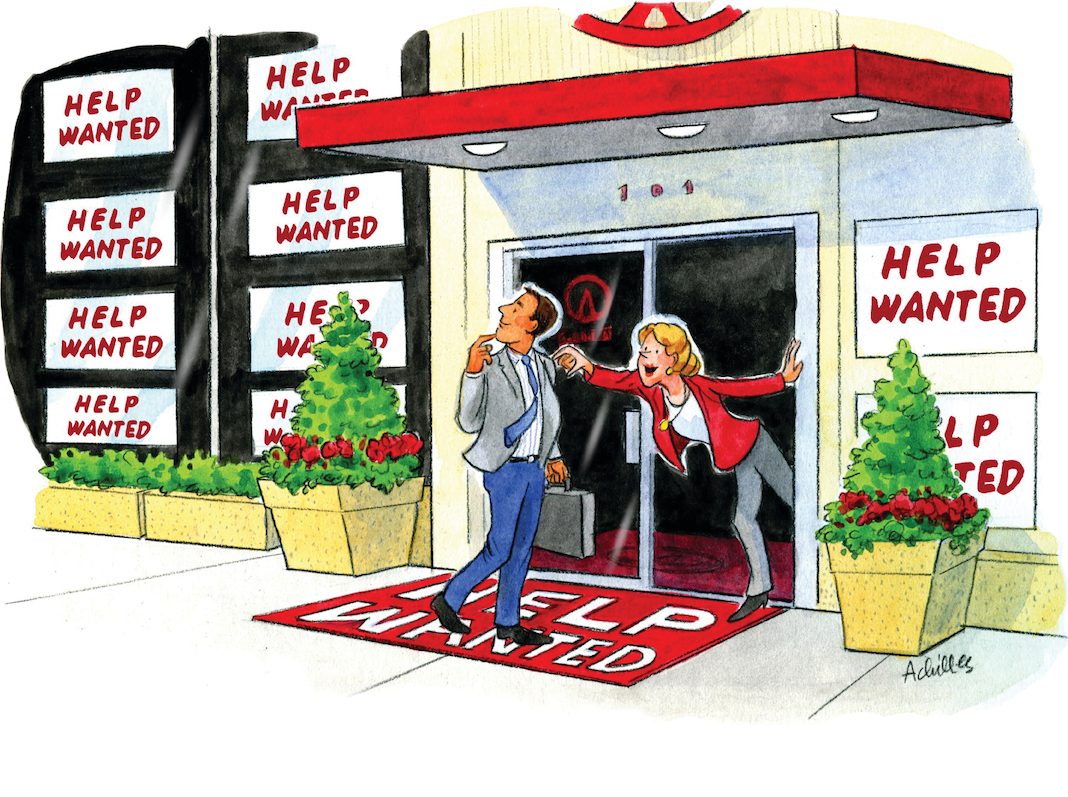Hospitality is one of the oldest industries, one that has continued to thrive because hoteliers understand and embrace the need to innovate, evolve, and respond to changing guest tastes and expectations, diversity demands, and ever-updating regulations. All of these evolving areas of the business require a workforce that is accustomed to a culture of constant change and innovation; ironically, though, not much has changed when it comes to recruiting, training, and retaining hospitality employees.
Labor remains the largest single expense item for hospitality and tourism organizations, accounting for over 40 percent of total operating costs. As such, all issues that could potentially impact labor cost should be carefully considered by managers and owners. With today’s technological advances, changes in immigration laws, and the increased minimum wage, hospitality managers must explore different avenues of recruiting and retaining appropriate staffing levels to remain profitable. This is especially challenging in the face the industry-wide staffing shortage, including the scarce supply of qualified candidates to choose from. According to the Foodservice Consultants Society International, the skills shortage is one of the biggest challenges facing the hospitality industry, one that applies to almost every segment of the hospitality industry, including hotels, casinos, RV parks, restaurants, and even cruise ships.
Many hospitality properties are also facing the challenge of a dwindling supply of qualified employees. Whether this is due to the pay, generational issues, lack of knowledge of the lodging industry as an option among potential workers, or competition with other industries, the problem of staffing is real.
In addition to staffing, training and technological advances may also pose a dilemma for hotel human resources departments. As consumers become accustomed to technology in every aspect of their lives, they expect front line employees in the hospitality industry to also have a working knowledge of their company’s technology offerings. This can be a major problem in an industry characterized by its highly diverse pool of workers. Therefore, hospitality must evolve to follow and incorporate technology changes and train team members on innovations entering the hotel space. This is critical because while hoteliers are facing a shortage of staff, they are still required to provide an exceptional guest experience to remain competitive and profitable.
With today’s technological advances, changes in immigration laws, and the increased minimum wage, hospitality managers must explore different avenues of recruiting and retaining appropriate staffing levels to remain profitable.
What’s the Solution?
Some hoteliers have resorted to an increase in technology and implementing platforms that reduce guest contact with employees. Others look to outsourcing employees, usually in the housekeeping, security, and call center departments, but this approach is temporary and can be costly in some geographic markets. The shortage of skilled culinary workers has already seen a significant increase in the use of cook-chill and vacuum-packed menu items in hotels and restaurants. While monitoring labor costs and introducing technology can help manage costs, hospitality managers should be aware of the impact of human interaction on customer satisfaction and loyalty. A fine balance between cost control and guest satisfaction is a necessity.
Hospitality companies have made substantial progress in considering other sources of staffing —veterans, disabled people, and senior citizens—but there are still untapped alternatives. With minimum training, retirees from other industries can be a great source of staffing for hospitality firms. A recent Louis Harris and Associates survey showed that there are more than 1.9 million early retirees (aged 50-64) who are ready and able to go back to work. Additionally, from a technology standpoint, hospitality firms could benefit significantly from using social media technologies to reach potential candidates from different generations. Social media enables real-time conversations with the outside world. It can also enhance communication inside the organization.
Turnover Factors
Turnover is perhaps the most critical concern in the hospitality sector. Industry studies indicate that turnover is due to the stressful and challenging nature of the business. No one disputes that hospitality can be extremely challenging, and as such, the industry should be making moves to be more supportive of research addressing the physically and psychologically challenging nature of the hospitality work environment. This should include financial contributions that support research efforts, curriculum development, and the provision of experiential learning opportunities. Furthermore, hospitality practitioners should commit to fully participating in future academic research that seeks to identify turnover causes and ways to address them, as well as taking active steps to reduce workplace stress and support employees’ mental and physical well being.
Hospitality educators should also collaborate with industry leaders to clearly define the specific skills and behaviors that would help hospitality students who are entering the workforce succeed in the hospitality workplace. In turn, hospitality professionals and researchers should further research and identify other reasons for withdrawal behaviors (turnover, absenteeism, and lateness) for entry-level and hourly supervisors in the hospitality sector.
For the time being, the challenges associated with staff shortages will continue in the hotel industry. To fully address this issue, the entire industry will need to embrace a radical shift in the hiring and recruiting process, a more modern approach to operational thinking, and enhanced employee training.
EXPLAINER
Employee Expectations
According to industry research, young employees in the hotel business face several physical and psychological pressures related to low wages, perceived lack of career opportunities, intergenerational challenges, long working hours, and demanding guests.
Many employees enter the lodging industry without considering that it could be a long-term career path. When hoteliers fail to promote the benefits of commitment in the hospitality industry or create a culture of retention, it results in a culture of turnover and unstable working conditions.
The hospitality industry has historically relied upon the 16- to 24-year-old age group for its entry-level positions. Communicating the career growth opportunities in the lodging industry can help with managing employee expectations and attracting, recruiting, and retaining younger skilled staff.












